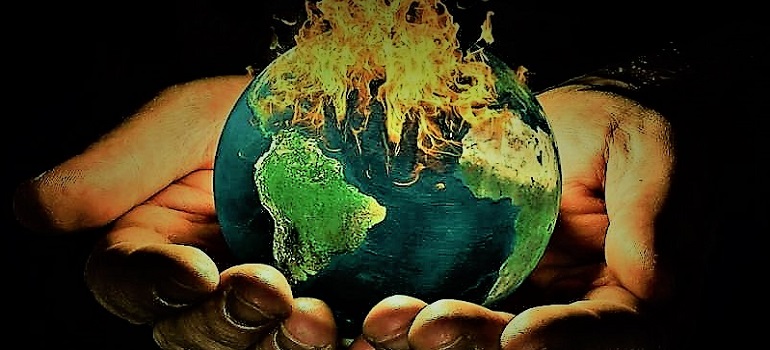Despite legally enforceable commitments to keep global temperatures rising by more than 1.5C over pre-industrial levels established at the 2015 Paris Climate Conference, the UN Environment Programme (UNEP) claimed in a new report that there is “no credible road to 1.5C in place” today.
Inger Andersen, Executive Director of UNEP said “This report tells us in cold scientific terms what nature has been telling us all year, through deadly floods, storms and raging fires: we have to stop filling our atmosphere with greenhouse gases, and stop doing it fast.”
“We had our chance to make incremental changes, but that time is over. Only a root-and-branch transformation of our economies and societies can save us from accelerating climate disaster.”
UNEP estimates that despite commitments made by nations in their Nationally Determined Contributions (NDC) to lessen their carbon footprint, since the previous climate summit in Glasgow in 2021, will lead to a cut of fewer than 1% of the world’s estimated greenhouse gas emissions for 2030.
This is the equivalent of just 0.5 gigatonnes of CO2, UNEP calculated, adding that only a 45 per cent emissions reduction will limit global warming to 1.5C.
As it stands today, latest data indicates that the world is on track for a temperature rise of between 2.4C and 2.6C by the end of this century.
If all of the current commitments to take action by 2030 are met, the world would experience catastrophic extreme weather and a rise in global temperature of around 2.5C. Climate catastrophes have been brought on by a rise of 1C to date in nations ranging from Puerto Rico to Pakistan.
“In the best-case scenario, full implementation of unconditional NDCs and additional net-zero emissions commitments point to only a 1.8C increase, so there is hope. However, this scenario is not currently credible based on the discrepancy between current emissions, short-term NDC targets and long-term net-zero targets,” UNEP said.
The UN agency explained, for the situation to improve, a “large-scale, rapid” and fossil fuel-free shake-up is needed of our “electricity supply, industry, transport and buildings sectors, and the food and financial systems” to cut emissions by 45 per cent to limit global warming to 1.5C, and by 30 per cent to keep average temperature rise to 2C.
And although the transformation towards net-zero greenhouse gas emissions is underway in electricity supply, industry, transportation and buildings, it needs to move “much faster”, the report concludes.
It found that electricity supply transformation had made most progress in some countries, amid dramatically reduced renewable electricity prices.
“It is a tall, and some would say impossible order, to reform the global economy and almost halve greenhouse gas emissions by 2030, but we must try,” said Ms. Andersen. “Every fraction of a degree matters: to vulnerable communities, to species and ecosystems, and to every one of us.”
Andersen said action would also bring cleaner air, green jobs and access to electricity for millions.
“Emissions remain at dangerous and record highs and are still rising. We must close the emissions gap before climate catastrophe closes in on us all,” said The UN secretary general, António Guterres.


